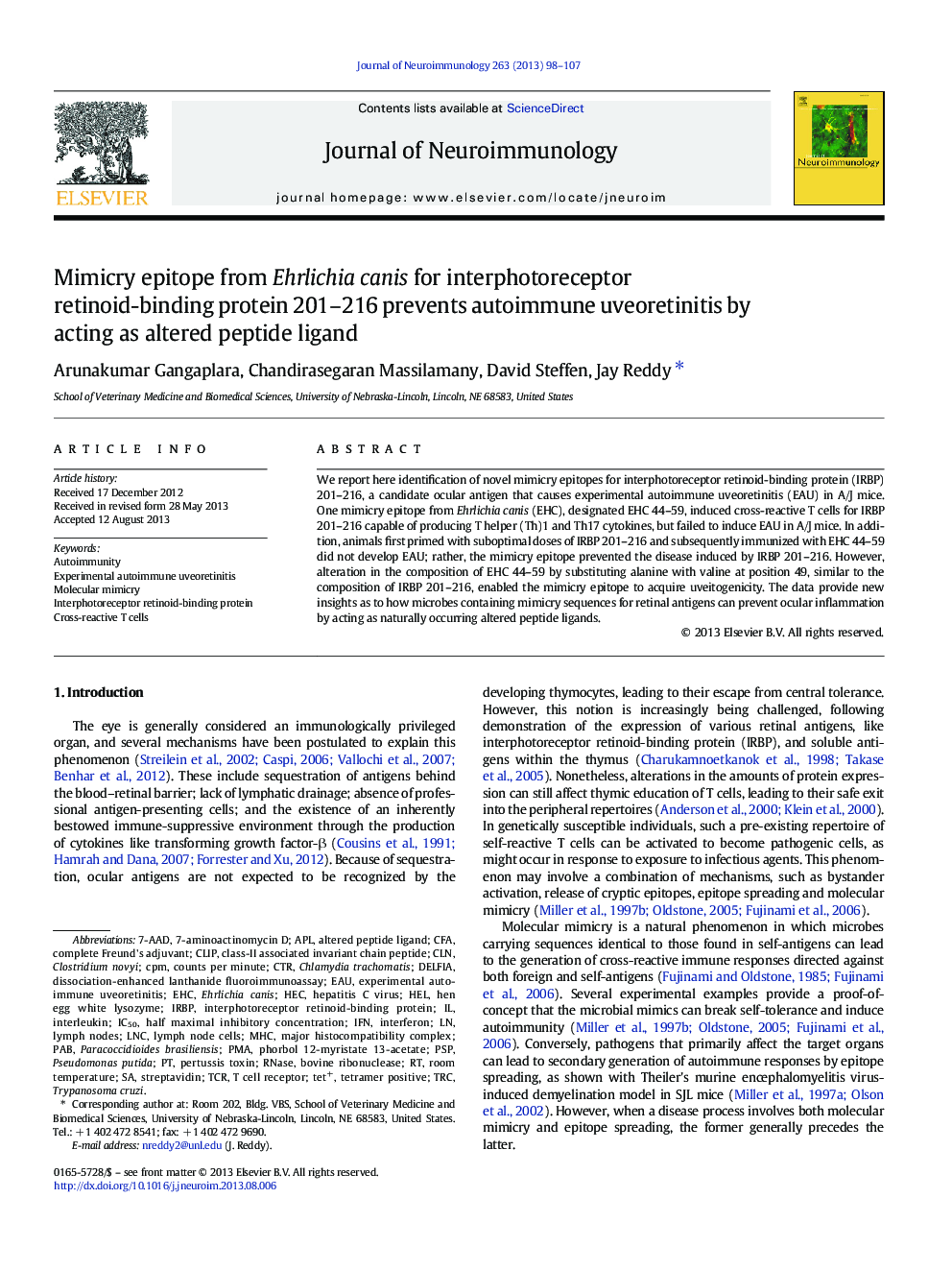| کد مقاله | کد نشریه | سال انتشار | مقاله انگلیسی | نسخه تمام متن |
|---|---|---|---|---|
| 3064234 | 1580411 | 2013 | 10 صفحه PDF | دانلود رایگان |

• Identified novel mimicry epitopes for IRBP 201–216
• An epitope from Ehrlichia canis induces cross-reactive T cells.
• The mimicry epitope prevented the disease induced by IRBP 201–216.
• The mimic acquired uveitogenicity when the sequence was altered.
We report here identification of novel mimicry epitopes for interphotoreceptor retinoid-binding protein (IRBP) 201–216, a candidate ocular antigen that causes experimental autoimmune uveoretinitis (EAU) in A/J mice. One mimicry epitope from Ehrlichia canis (EHC), designated EHC 44–59, induced cross-reactive T cells for IRBP 201–216 capable of producing T helper (Th)1 and Th17 cytokines, but failed to induce EAU in A/J mice. In addition, animals first primed with suboptimal doses of IRBP 201–216 and subsequently immunized with EHC 44–59 did not develop EAU; rather, the mimicry epitope prevented the disease induced by IRBP 201–216. However, alteration in the composition of EHC 44–59 by substituting alanine with valine at position 49, similar to the composition of IRBP 201–216, enabled the mimicry epitope to acquire uveitogenicity. The data provide new insights as to how microbes containing mimicry sequences for retinal antigens can prevent ocular inflammation by acting as naturally occurring altered peptide ligands.
Journal: Journal of Neuroimmunology - Volume 263, Issues 1–2, 15 October 2013, Pages 98–107